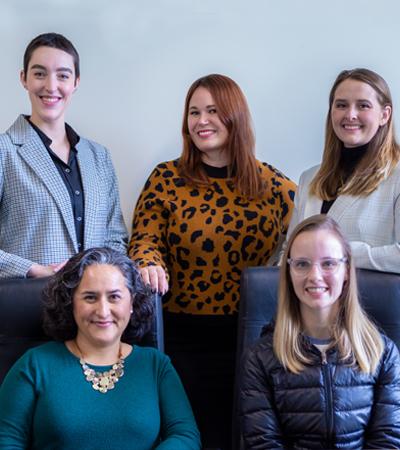
Magilton and Students Contribute Working Paper to European Centre for Excellence
07 Dec 2021
Elsbeth Magilton, ’11, the executive director of the Space, Cyber, and Telecommunications Law program, and a team of students recently completed a large project with the European Centre of Excellence in Countering Hybrid Threats (Hybrid CoE). Magilton has been a member of the legal expert pool at Hybrid CoE since 2019 and was a participant in the pools initial convening at the University of Exeter. The Hybrid CoE has yet to bring space security issues in as a focus. Magilton worked with a team of student researchers at Nebraska Law, Leana Brown, ’22, Lauren Bydalek, ’22, Endeliza Hampton , ’22, and Paige Ross, ’23, to create an issue paper, outlining modern security issues in space law, encouraging and launching the Hybrid CoE’s new work and focus in the area.
Magilton explained, “our paper is a broad general scope exploration into the many facets of space issues and security – from the increase in satellites in low earth orbit, to military conflict in space, and more. We are so pleased the Centre plans to use this effort to outline it’s interest and work in the space domain and to guide its internal decision making for efforts in these subfields.” She went on to note, “our students are incredibly dedicated, talented, and enthusiastic about technology and space. I am so pleased that this excellent team chose to apply for this position and spend their time and efforts in supporting this project.”
Hybrid CoE is an international, independent network-based organization promoting a whole-of-government and whole-of-society approach to countering hybrid threats. The Centre’s key task is to build participating states’ capabilities to prevent and counter hybrid threats. This is done by sharing best practices, testing new ideas and approaches, and providing training courses and exercises. Hybrid CoE also has an important role as a platform between the EU and NATO, providing a forum for strategic discussions and joint training and exercises. You can learn more about the European Centre of Excellence in Countering Hybrid Threats online at https://www.hybridcoe.fi.
All of the student members of the team have shown a dedicated interest in space law issues. Leana Brown is the co-president of the Nebraska Law Space, Cyber, and Telecommunications Law club, a National Space Society legal researcher, and is spending the spring 2022 semester as an intern at the North American Aerospace Defense Command (NORAD) working on policy. Leana co-moderated the ‘Artemis Accords: Expanding and Implementing the Accords & Their Impact on Space Law’ panel at the 2021 Space Law Week Virtual Conference. She also competed in the Manfred Lachs Space Law Moot Court Team in March 2021, alongside Lauren Bydalek, who also continues to be engaged in the competition. Brown and Bydalek, with their third team member Martin Fischer, reached quarter finals and had the second-place brief in the competition. Lauren also serves as the Nebraska Law Space, Cyber, and Telecommunications Law club’s Telecommunications Director, connecting students to resources in that field.
Endeliza Hampton spent the summer of 2021 performing research for Jennifer Manner (Senior Vice President, Regulatory Affairs at EchoStar Corporation) on her recent book on spectrum management. Endeliza co-moderated the ‘Spectrum and Space Activities: Future Challenges and Opportunities’ panel at the 2021 Space Law Week Virtual Conference. Paige Ross serves as the Career Coordinator for the Nebraska Law Space, Cyber, and Telecommunications Law club, connecting students with field specific resources at the college. Additionally, Paige is the Nebraska Governance and Technology Center fellow and has extensive research experience in the regulation of online content.
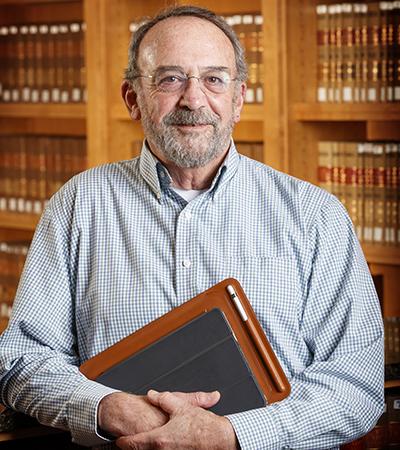
Leiter Appointed to U.S. Government Publishing Office Task Force
06 Dec 2021
Professor Richard Leiter has been appointed to a U.S. Government Publishing Office (GPO) task force that will study the feasibility of a digital Federal Depository Library Program (FDLP).
The task force is charged with defining the scope of an all-digital depository program and making recommendations as to how to implement and operate such a program. This will include an examination of the current landscape in Federal depository libraries, of FDLP-related operations at GPO, and of the dissemination of publications by Federal agencies.
The COVID-19 pandemic created urgency for libraries to rapidly pivot to online engagement and delivery of services. The work of the task force will culminate on December 31, 2022, with a strategic framework and implementation plan for an all-digital FDLP.
Leiter is the Director of the Schmid Law Library and Professor of Law. He has written widely on law library, legal research, and legal information technology issues. Earlier this year, Leiter was selected as a member of the Depository Library Council, an advisory committee to the Director of GPO and the Superintendent of Documents.
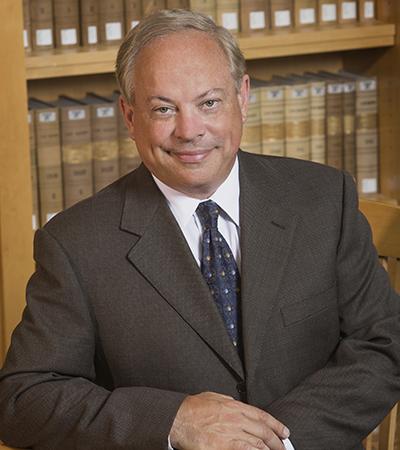
Professor Jack Beard Published in Harper's Magazine
24 Nov 2021
Professor Jack Beard was interviewed and quoted in Harper’s Magazine November 2021 issue: The Coming Battle Over Space. Harper's Magazine is a monthly magazine of literature, politics, culture, finance, and the arts.
The article discusses the possibilities of future provocations in space between rival nations participating in what is seen as a new cold war style race of tech and potential arms to gain a leg up in the outer space domain. “We are watching tensions ratchet up,” Beard says.
With these rising tensions, there is a dire need to shore up the “soft edges” of the 1967 Outer Space Treaty (OST); the basic legal framework of international space law. The Woomera Manual, a rule book drafted by an independent team of scholars, government officials, and other space and legal experts from around the world, will attempt to address the inefficacies of the outdated OST. For example, article nine of the OST introduces a nebulous concept, saying that states are required to “undertake appropriate international consultation” if an action in space will cause “harmful interference” with the peaceful activities of another party. What is “harmful interference”? Woomera’s task, Beard said, is in part to answer this question.
When looking at all the potential conflict points in outer space, and the inclusion of ever-increasing civilian activities by companies such as Blue Origin, Virgin Galactic, and Space X, it becomes clear that space is a coveted domain, and the battle for dominance over that domain has only just begun.
Professor Beard is a Co-Director of the Space, Cyber and Telecom Law Program, teaching courses in International Cyber Security and National Security Space Law. He also teaches courses in National Security Law, Arms Control, and Human Rights & International Criminal Law. His primary research interests focus on public international law and national security law, with a particular emphasis upon space law, cyber capabilities, arms control, the law of armed conflict, and the international legal implications of modern military technologies.
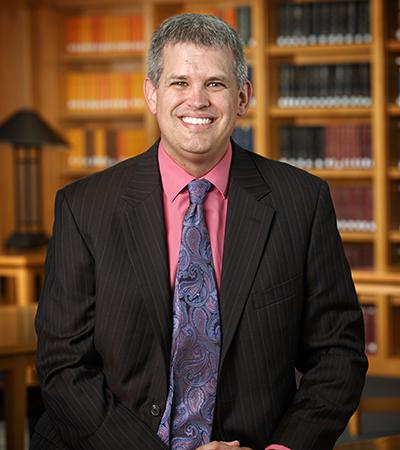
Stohs and Weibling Entrepreneurship Clinic recognized at the Annual Entrepreneurship Summit
23 Nov 2021
Professor Brett Stohs and the Weibling Entrepreneurship Clinic were honored with the annual Distinguished Hall of Fame Award. This award was announced at the Nebraska Entrepreneurship Best Practices Summit held in York, NE at the Holthus Center on Tuesday, November 9th, 2021. This is the 6th summit held in the state hosted by the state-wide coalition, NETForce. The day-long event features expert presenters offering up information about educational strategies and economic building tools that encourage entrepreneurship and innovation.
“The Weibling Entrepreneurship Clinic at the University of Nebraska Law College has been a resource to entrepreneurs, educators and community builders since 2013. Brett and his team educate tomorrows business attorneys,” says Lisa Tschauner of UNK who nominated Stohs and the center. “The clinic has helped countless small businesses become legitimate and to function in a viable way at no charge. The students who work in the clinic often return to rural Nebraska communities providing vital legal services to residents of the state. The clinic provides free advice and legal representation to startup business clients throughout the State of Nebraska under the supervision of Professor Brett Stohs.”
The NETForce organization accepts nominations from across the state prior to the annual Entrepreneurship Best Practices Summit in the following categories: Outstanding Entrepreneurship Service, Entrepreneurship Educator of the Year and Gregg Christensen Distinguished Hall of Fame. NETForce member, Nebraska Enteprise Fund is the sponsor of the award ceremony, providing each recipient with a recognition plaque.
“The Best Practices Summit is a wonderful event where attendees can network with other practitioners and learn about what is happening across the state,” says event chair, Marilyn Schlake of UNL. “This event is meant for anyone who is interested in building the entrepreneurial ecosystem including educators, administrators, economic developers, community organizers, policy-makers or service providers.”
NETForce is an actively engaged group of collaborating partners focused on building Nebraska’s entrepreneurial ecosystem by promoting education and career opportunities available to youth and adult entrepreneurs across Nebraska. The mission of the Nebraska Entrepreneurship Task Force (NETForce) is to identify and share resources to further entrepreneurship through education, collaboration and innovation.
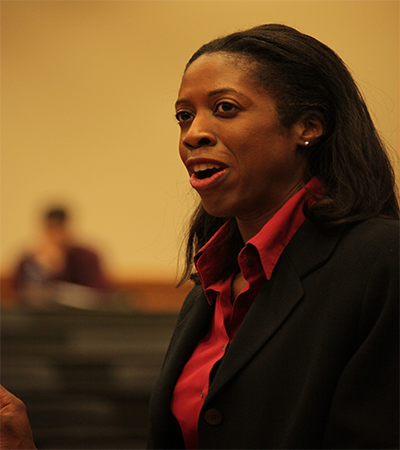
Sheppard Serves as Panelist on Tsai Center Patent Law Symposium
18 Nov 2021
Professor A. Christal Sheppard served as a panelist during a virtual session at the 18th Annual Symposium on Emerging Intellectual Property Issues: Patent Law and Institutional Choice, hosted by the Tsai Center on Oct. 29.
The panel prof. Sheppard spoke on was titled "Arthrex, the PTAB, and the USPTO Director’s New (Temporary?) Authority over Patent Opposition Proceedings," and she was joined by Tejas N. Narechania, University of California, School of Law, and Jason Rantanen, University of Iowa College of Law.
During the discussion, Sheppard and the other panelists explored topics like the Supreme Court's ruling that the unreviewable authority of Administrative Patent Judges of the Patent Trial and Appeal Board was not compatible with the manner of their appointment under the Appointments Clause of the Constitution. As a result, the Court invalidated a portion of the patent statute that prevented the presidentially-appointed Director of the U.S. Patent and Trademark Office from reviewing Board decisions and issuing new decisions on behalf of the Board. Since then, the U.S. Patent and Trademark Office has issued an interim procedure for Director review of Board decisions. But members of Congress have suggested that a more radical restructuring of review authority may be appropriate. This panel will consider these recent developments, with an eye toward identifying an appropriate mechanism for ensuring accurate decision making over invalidity disputes while recognizing the political accountability required by the Appointments Clause.
The Tsai Center for Law, Science and Innovation is "a research-focused academic center exploring how law and policy affect scientific research and discovery as well as the development and commercialization of new technologies," and housed within the Southern Methodist University Dedman School of Law.
For more information on the symposium, click here.
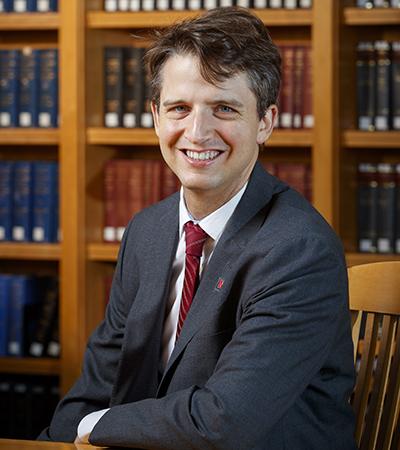
Langvardt Speaks on First Amendment at University of Arizona Virtual Discussion
18 Nov 2021
Professor Kyle Langvardt, was a featured speaker during a speaker series titled "Public Conversation Series 2021" co-hosted by the University of Arizona's James E Rogers College of Law and the University of California, Los Angeles Institute for Technology, Law, and Policy on November 16, 2021.
During the panel, which served as a discussion between authors and executive editors of the Journal of Free Speech Law, Prof. Langvardt was joined by Adam Candeub, Michigan State University College of Law, and Eugene Volokh, University of California, Los Angeles School of Law. Both prof. Langvardt and Candeub have papers, which have been recently published in the journal, of which prof. Volokh is the executive director.
The latest edition of the journal features prof. Langvardt's paper entitled, "Can the First Amendement Scale?" as well as prof. Candeub's paper, "Reading Section 230 as Written," and another paper co-authored with Volokh titled, "Interpreting 47 U.S.C. § 230(C)(2)."
More information about the journal can be found here.
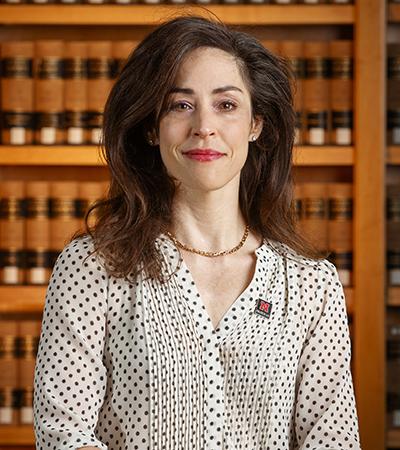
Zeide Serves as Panelist at Event Co-Hosted by Joint Center and White House
18 Nov 2021
Professor Elana Zeide, faculty at the Nebraska Governance and Technology Center, served as a panelist for Advancing Equal Protections & Civil Justice in an Automated Society, a virtual discussion held November 17, 2021.
The Advancing Equal Protections & Civil Justice in an Automated Society panel was co-hosted by the Joint Center for Political and Economic Studies and the White House Office of Science and Technology Policy, wherein panelists discussed and explored current and emerging uses of technology that affect the equity of opportunity in employment, education, housing, and financial well-being.
Panelists also discussed the state of reforms and interventions that can shift technology innovation toward more equitable outcomes and technical mechanisms for ensuring that AI use does not erode civil rights and liberties.
For more information on this and other upcoming events, click here.
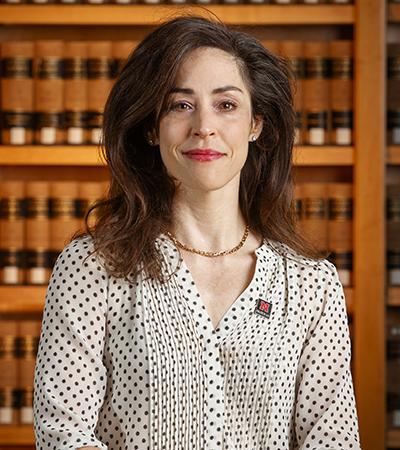
Zeide Moderates and Speaks at U.S. Technology Policy Committee Panel
17 Nov 2021
Professor Elana Zeide served as moderator and panelist during the Policy, Profit, Privacy, and Privilege: The Post-Pandemic Future of Remote Testing Technolgy webinar on Nov 15, 2021.
This particular webinar, moderated by prof. Zeide, featured industry experts and touched on topics such as how "last year's pandemic-prompted lockdown disrupted institutions of every kind, none more profoundly than schools, and vaulted many commercial technologies already in use to prominence. While online meeting software like Zoom took center stage, a host of remote testing administration (RTA) products also were perhaps less noticeably deployed by educators to proctor tests at almost every grade level more than ever before. As widely reported, however, profound issues of these systems' accuracy, security, and fundamental fairness to less-advantaged students rapidly surfaced and have yet to be resolved."
The webinar was part of the United States Technology Policy Committee's HotTopics Webinars series.
For more information or to watch a recording of the webinar, click here.
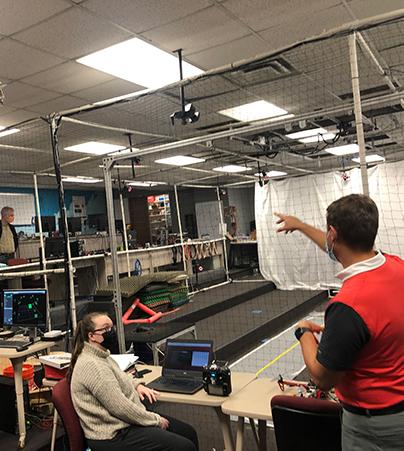
NGTC Fellows Visit NIMBUS Drone Lab
11 Nov 2021
Nebraska Governance and Technology Center Faculty Fellows and staff visited the NIMBUS Lab at the Univeristy of Nebraska-LIncoln School of Computing, Nov. 10.
The NIMBUS (Nebraska Intelligent MoBile Unmanned Systems) Lab is an exciting place where the latest research and technology in software and systems engineering, robotics, and sensor networks converges to develop more capable and dependable UAVs (unmanned aerial vehicles)
Justin Bradley, co-director of the Nimbus Lab and assistant professor at the School of Computing, gave attendees a tour of the lab and demonstrated the operation of how autonomous drones operate within an in-lab setting.
During his tour, Professor Bradley explained that the drones used in the lab were not only for monitoring and capturing visuals, but serve other purposes like collecting samples for environmental studies and research. Other known purposes for these drones include digging holes and placing sensors, and more. He also mentioend that some of the ongoing challenges with using drones include needing to rely on battery power, communications, and non-fixed wing flight.
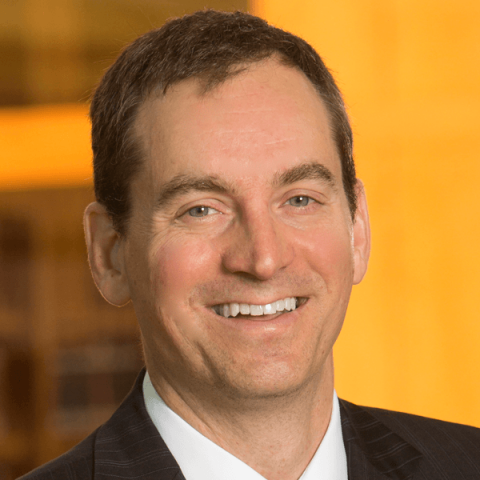
Schaefer Pens Op-ed for Leading Space News Site
10 Nov 2021
Professor Matthew Scheafer pens Op-ed for leading Space News site, dissecting what is being called the 4th industrial revolution. While first industrial revolution involved machines powered by steam and water, the second began with the harnessing of electricity, the third was launched with advent of computers and supercomputing. The 4th encompasses the Internet of Things, machine-to-machine communications, 3D printing, Big Data analytics, autonomous robots, life science developments, and more. Today there are roughly 20 billion connected “things” or devices with expectations for more than 80 billion connected devices by 2025, Schaefer's piece reflects on modern changes in law and the space industry.
Read the full Op Ed Here
Matthew Schaefer is the Veronica A. Haggart and Charles R. Work Professor of International Trade Law and Founding Co-Director of the Space, Cyber and Telecommunications Law Program. He has over two decades of law teaching experience and has taught courses in international law, international trade law, international business transactions, foreign relations law and policy, introduction to the American legal system, space law, and cyber law. In 2012, he led efforts to have the Law College adopt a required first-year course in international law for all J.D. students, and currently teaches a section of the course after co-teaching a combined course to all 1Ls with Professor Lepard for the seven years. Combined with his required upper-level course in international law for LL.M. students, most University of Nebraska students obtaining a J.D. or LL.M. degree are taught the basics of international law, and the intersection of international law with the US legal system, by Professor Schaefer.
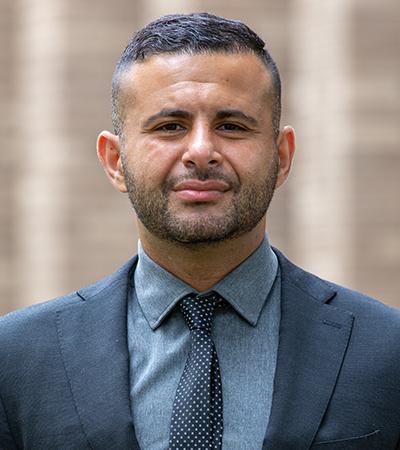
Professor and author Khaled Beydoun to discuss Islamophobia
08 Nov 2021
Khaled Beydoun, acclaimed authored and law professor, will discuss “Islamophobia: The Myths, Roots, and Rise” at noon Nov. 12 at the University of Nebraska College of Law.
The objectives of this lecture are to humanize the experience of Muslims during the War on Terror, describe the legal architecture/ legal framework of Islamophobia in America, bring attention to the distinct form of injury experienced by Muslims, and demystify stereotypes.
Beydoun’s research examines the legal construction of Arab and Muslim American identity, the foundational and modern development of Islamophobia and the intersection of national security policy, civil liberties, and citizenship. Beydoun is a leading public intellectual on Islamophobia, in the United States and abroad, and other matters relevant to policing and profiling of Muslim populations. He is the author of the critically acclaimed American Islamophobia: Understanding the Roots and Rise of Fear. In addition to his regular commentary in Al-Jazeera English, Beydoun’s insight has been featured in the Washington Post, the New York Times, San Francisco Chronicle, Time, Salon, and ESPN; and television and radio news programming including CNN, the BBC, Fox, NBC, and ABC News. Since 2019, Beydoun has annually been included on the list of the 500 Most Influential Muslims in the World.
Beydoun’s lecture is presented by the Muslim Law Students Association (MLSA). MLSA is dedicated to helping Muslim students feel welcomed and empowered to build the narratives of Muslims in the legal field together and aims to create a safe space for Muslim students and allies to discuss the multi-faceted experiences of Muslim law students.
The event is free and open to the public. This program has been approved for 1.0 CLE credit in Nebraska. Attorneys requesting CLE credit and those attending remotely should register at https://go.unl.edu/beydoun.
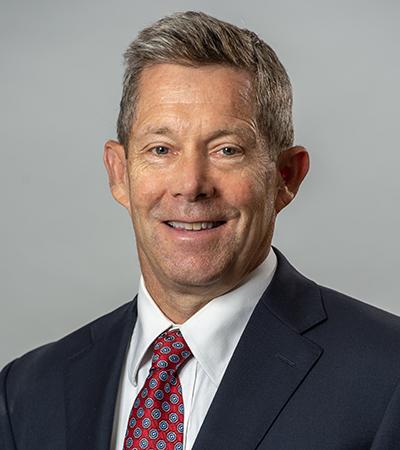
Direct Democracy Symposium features Chief Judge for the Sixth Circuit Court of Appeals
04 Nov 2021
U.S. Court of Appeals for the Sixth Circuit Chief Jeffrey Sutton will deliver the Lane Lecture at 4:30 pm Nov. 12 at the University of Nebraska College of Law.
Judge Sutton will discuss his new book Who Decides? States as Laboratories of Constitutional Experimentation. The first 20 registered guests will receive a copy of the book.
The discussion will continue Nov. 13 during the Direct Democracy Symposium.
The program includes nationally recognized scholars on the theory and practice of direct democracy, including Judge Sutton. The symposium was organized in response to Nebraska’s recent experience with ballot initiatives seeking state constitutional amendments that would legalize gambling and medicinal marijuana. Both initiatives were mired in litigation on the eve of the general election, and they resulted in two Nebraska Supreme Court opinions on the single-subject rule. This symposium allows participants to reflect on the role of direct democracy and to reconsider its design in Nebraska.
The Lane Lecture and Direct Democracy Symposium are supported by the Winthrop and Frances Lane Foundation which provides scholarships to students and provides grants to support faculty research and scholarly lectures. Winthrop Lane was born in Omaha in 1889 and attended Harvard Law School. He was a partner in the firm of Rose, Wells, Martin and Lane, a predecessor to the present Baird Holm law firm.
Both events are available in-person and via Zoom, although in-person attendance is encouraged. Registration is available at https://law.unl.edu/direct-democracy-symposium/. The events are free and open to the public. The symposium has been approved for 4.0 CLE credits.
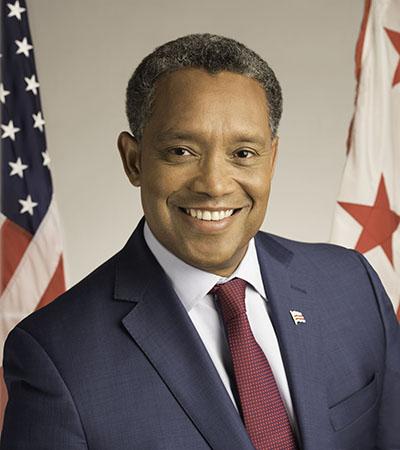
Attorney General for the District of Columbia to deliver law lecture
27 Oct 2021
Attorney General Karl Racine will present the Attorney General Jon Bruning Public Service Lecture at noon Nov. 5 in the College of Law’s Hamann Auditorium and available via Zoom.
Attorney General Racine was sworn in as the District of Columbia’s first elected Attorney General in 2015 and was reelected to a second term in 2018. As the chief legal officer for the District of Columbia, Racine relies on his nearly 30 years of legal and leadership experience to advise the mayor and District agencies, defend the city in court, and use the law to advance the public interest.
His career includes representing indigent residents in D.C., volunteering in a clinic supporting migrant farm workers’ rights, to serving as associate White House counsel in the first Clinton Administration and practicing white-collar and commercial litigation with leading law firms. While in private practice, Attorney General Racine was elected managing partner of his firm, Venable LLP, and became the first African American managing partner of a top-100 American law firm.
In addition to discussing his career, Attorney General Racine will talk personally about how current and aspiring lawyers can find ways to use the law to uplift vulnerable residents.
The Attorney General Jon Burning Lecture was established to provide an opportunity for students to focus on the significance of dedicating all or a portion of one’s career to public service. Bruning served as attorney general of Nebraska from 2003-2015 and as a state senator from 1997-2002. Bruning graduated Phi Betta Kappa from the University of Nebraska-Lincoln with high distinction and graduated with distinction from the Nebraska College of Law in 1994.
The talk is free and open to the public. We expect this program to be approved for 1.0 continuing legal education credit.
Attorneys wishing to receive CLE credit and those interested in joining remotely should register at law.unl.edu/alumni-cle.
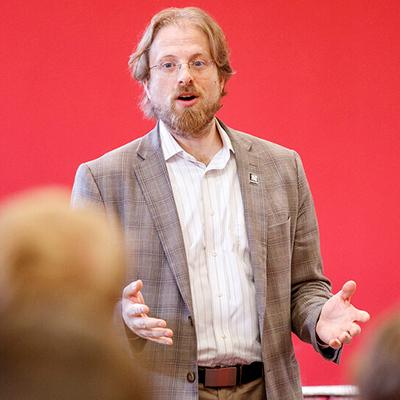
Hurwitz Speaks on Panel Discussing FTC
22 Oct 2021
Professor Gus Hurwitz, was a featured speaker during a panel titled "Does the FTC Have Authority to Issue UMC Rules?" hosted by TechFreedom on Oct. 21.
During the panel, Hurwitz shared his insight and perspective to help answer questions like: how will the FTC's crusade against the tech industry affect long standing antitrust policy? Is there merit to the FTC's lawsuits alleging Facebook as a monopoly? Is the FTC prepared for the barrage of rulemaking litigation to follow? What is the future of the FTC under Chair Kahn?
The panel was moderated by Bilal Sayyed, former director of the FTC’s Office of Policy Planning, and featured speakers Hon. Maureen Ohlhausen, Former Chair and Commissioner of the FTC, Prof. Thomas W. Merrill, Columbia Law School, Prof. Justin (Gus) Hurwitz, University of Nebraska College of Law, Peter J. Wallison, Senior Fellow Emeritus at the American Enterprise Institute (AEI), and Berin Szóka, President and Founder of TechFreedom
TechFreedom is a non-profit, non-partisan technology think tank launched in 2011. Their mission is to promote the progress of technology that improves the human condition and expands individual capacity to choose.
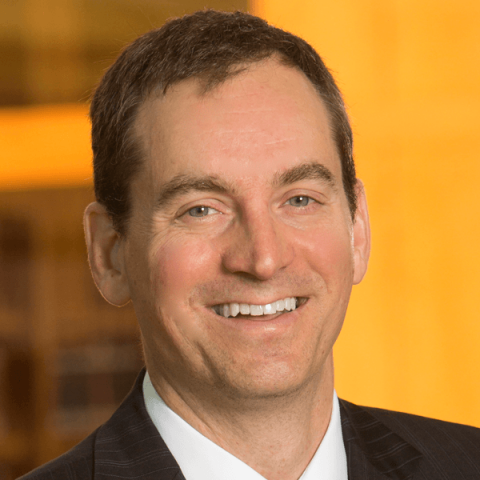
Schaefer Serves as Panelist for the 2021 Allen L. Poucher Lecture
20 Oct 2021
Professor Matthew Schaefer, Veronica A. Haggart and Charles R. Work Professor of International Trade Law and Founding Co-Director of the Space, Cyber and Telecommunications Law Program, served as a panelist for the 2021 Allen L. Poucher Lecture on October 13, 2021.
The 2021 Allen L. Poucher Lecture was created by Betty Poucher, Elizabeth Poucher Reynolds and Allen Poucher Jr. to provide support for a lecturer, professor, legal expert or expert panel to present an annual education event addressing relevant legal, political or business topics.
Professor Schaefer is a frequent speaker on current topics in space law across the country, including at the University of Michigan Law School, Fordham Law School, Columbia Law School, New York University Law School, University of California-Irvine Law School, University of Southern California Law School, Emory University Law School, and University of Florida Law School. Professor Schaefer has moderated, presented and/or participated on panels at eight major national or international conferences - the IAA Heads of Space Agency Summit, AIAA Space, the National Space Symposium, ABILA International Law Weekend, IISL Eileen Galloway Symposium, Annual UNL DC Space Law Conference, Newspace conference, and International Astronautical Congress.
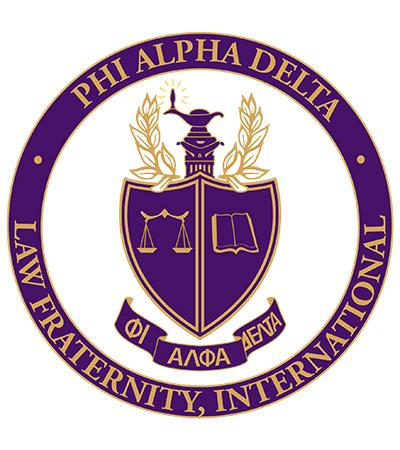
Phi Alpha Delta Wins Award for Career Closet
05 Oct 2021
The Manoah B. Reese Chapter of Phi Alpha Delta at the Nebraska College of Law has been honored with an Outstanding Community Service Program Award for its work with the Career Closet.
Phi Alpha Delta (PAD) chapters and officers are recognized annually for their outstanding fraternity achievements and performance, and for the impact they make locally and nationally. The Career Closet was chosen by the international PAD office as the second-place winner of community service programs.
The Career Closet provides free gently used or new business formal clothing to students at Nebraska Law and is open bi-weekly.
PAD is a preeminent law fraternity because of their dedication to service: service to the student, the school, the profession, and the community. The Reese Chapter is among over 200 other law school chapters.
If you have questions about the Career Closet or would like to make a donation, contact nelawcareercloset@gmail.com.
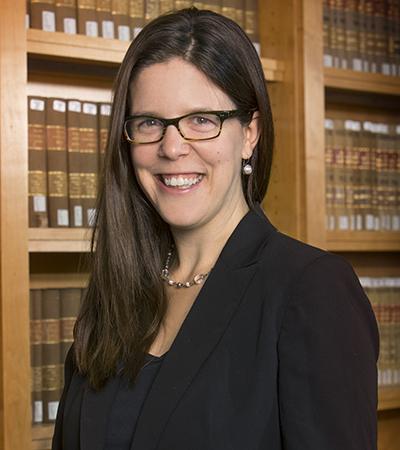
Shoemaker Named Recipient of the Ray H. Bunger Memorial Award for Excellence
05 Oct 2021
Professor Jessica Shoemaker is this year’s recipient of the Ray H. Bunger Memorial Award for Excellence. This Award is an annual award chosen on the basis of demonstrated excellence in teaching, research, academic promise, and achievement related to the fulfillment of the research and teaching mission of the University of Nebraska College of Law. The donor for this award gave this gift to commemorate the life of the donor’s father, Ray H. Bunger, who was a lifelong devoted supporter of the University of Nebraska. He sent his three sons to the University of Nebraska for varying periods and several of his grandchildren also received education at the University. He firmly believed that “a good education is something that can never be taken away from you.” He was President of the Franklin County School District #44 and Secretary of the Board of Upland COOP Credit Association.
Shoemaker’s scholarship productivity has been outstanding again this year. She had an article placed in the Michigan Law Review. She also wrote several other pieces that are gaining national attention, such as her piece for The Conversation and her essay in the online Regulatory Review. She also created, with Anthony Schutz, the Rural Reconciliation Project, which is a tremendous way to apply her scholarly insights and interact with a large group of scholars. I think this Project will have a significant impact going forward. Finally, Shoemaker received a Carnegie Fellowship, one of only 26 awarded across the country. It is quite an acknowledgment of the importance, impact, and high-quality of her scholarship.
Shoemaker also has had an impact with her teaching, both in her own classroom and with our colleagues across the College. In her classroom, she continued to excel, with extremely positive teaching reviews. Students raved about her ability to lead a class discussion, her effective communication style, and her use of technology and various visual aids. Shoemaker also was a peer leader by working with her faculty colleagues to create a forum for the faculty to discuss pedagogy, which was especially helpful during our turn to hybrid and remote learning over last summer. She also helped the faculty focus on race and inclusion issues as we discussed ways to bring those issues into our curriculum and pedagogy.
Finally, Shoemaker’s service was outstanding. She was a tremendous chair of the faculty appointments committee during a very difficult hiring year. She worked on other important committee projects, such as the readmission process, awarding NPILF grants, and hiring a new associate dean for faculty. She also engaged with the broader university through planning a national symposium for the Center for Great Plains Studies.
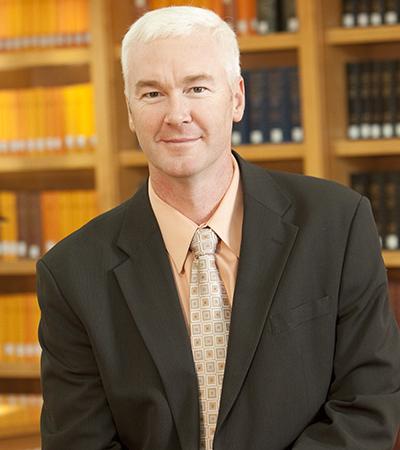
Schmidt Named Recipient of the John H. Binning Award for Excellence
05 Oct 2021
Professor Steve Schmidt is the recipient of this year’s John H. Binning Award based on his outstanding teaching and service to the College. With regard to teaching, Schmidt may have had one of the toughest course-adjustments necessary to adjust to remote learning and COVID-19 protocols, with a live clinic in a courthouse and a practical skills class like trial advocacy that puts a premium on in-person skills development. By all accounts Schmidt successfully taught the classes despite the difficult circumstances, as demonstrated by the extremely positive student evaluations. Schmidt’s Criminal Clinic course is one of the most highly rated courses at the College each semester. In addition, he singlehandedly revamped our trial advocacy program to create an intense and rewarding student experience. He teaches the course himself each semester in addition to his Criminal Clinic teaching. This teaching is time-intensive and requires coordinating multiple adjuncts and teaching assistants for the course each semester and managing multiple full trials for the students’ final project. The difficulties inherent in these logistics were multiplied by the COVID-19 protocols required by the pandemic.
Schmidt also provided excellent service to the College this year. His most time-consuming work involved him taking on head coaching responsibilities for our National Trial Team for the first time this year. He made an immediate impact, with one of the teams winning the regional competition and making it to nationals. Schmidt also smartly and successfully incorporated College alumni as consultants and judges for the Trial Team practices, which both strengthened our connection with those individuals and gave the students terrific role-models and mentors.

Nebraska's Legal Education for Public Service and Rural Practice Loan Repayment Assistance Program is now open
04 Oct 2021
The deadline to apply for loan forgiveness through Nebraska's Legal Education for Public Service and Rural Practice Loan Repayment Assistance Program is October 22, 2021.
The purpose of the Program is to recruit and retain qualified attorneys who: 1) are employed by tax-exempt charitable organizations and provide legal services to low-income people; or 2) provide legal services in designated legal profession shortage areas in Nebraska.
Eligibility criteria and application materials are available here: Nebraska's Legal Education for Public Service and Rural Practice Loan Repayment Assistance Program Packet
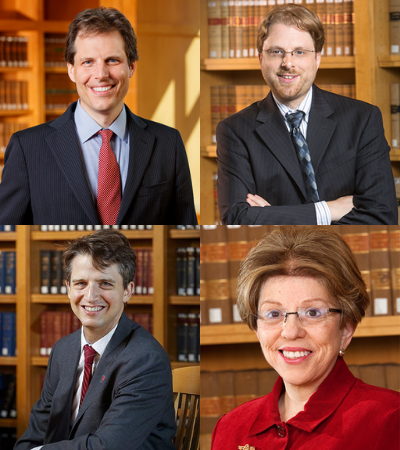
ACS and Federalist Society Hosts Constitution Day Discussion
17 Sep 2021
On September 17, the Nebraska College of Law chapters of the American Constitution Society and the Federalist Society hosted a panel discussion featuring Professors Eric Berger, Gus Hurwitz, Kyle Langvardt & Jo Potuto.
"Supreme Court Roundup" discussed some of the most important cases from the most recent Supreme Court term.